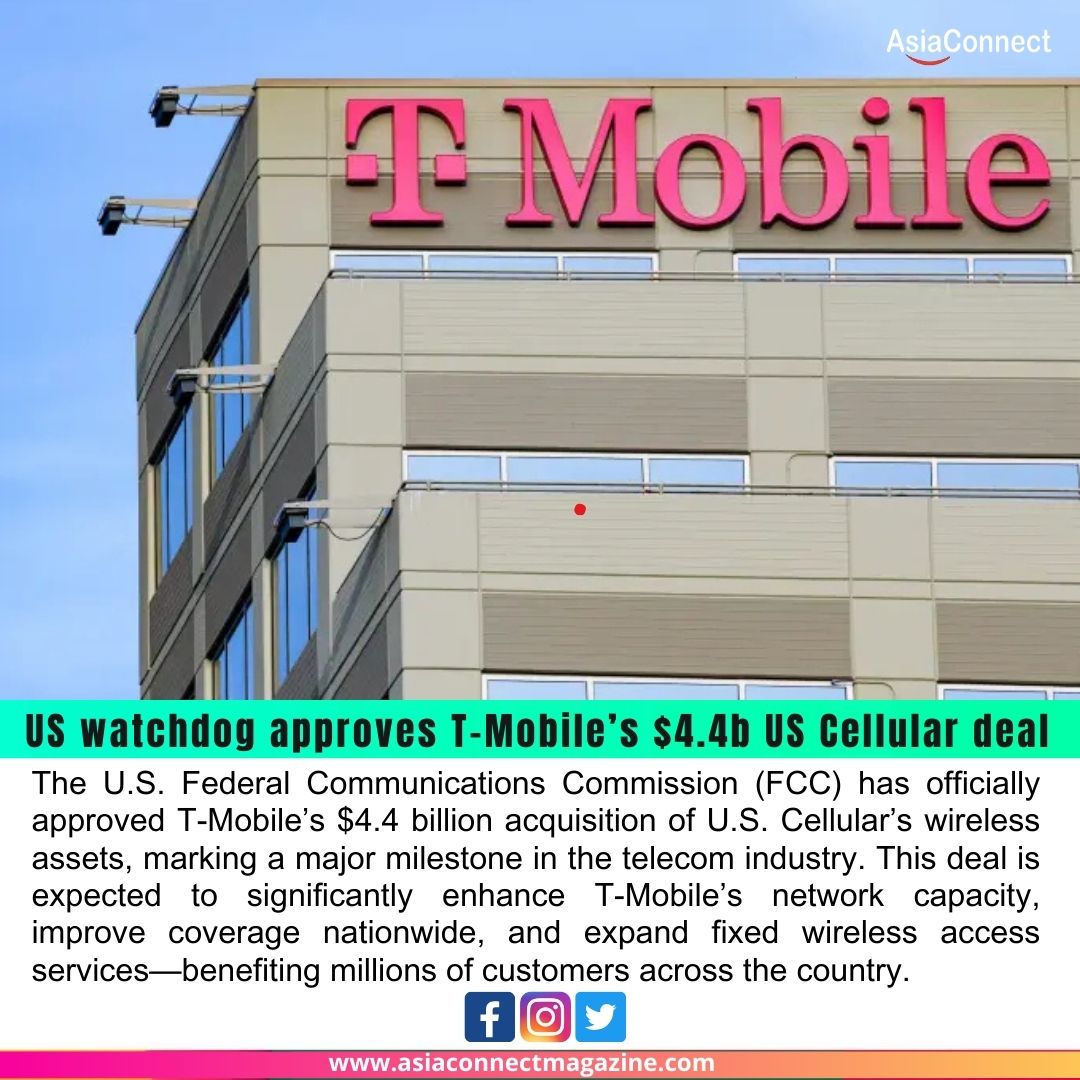The U.S. Federal Communications Commission (FCC) has officially approved T-Mobile’s $4.4 billion acquisition of U.S. Cellular’s wireless assets, marking a major milestone in the telecom industry. This deal is expected to significantly enhance T-Mobile’s network capacity, improve coverage nationwide, and expand fixed wireless access services—benefiting millions of customers across the country.
T-Mobile’s acquisition includes approximately 30% of U.S. Cellular’s wireless spectrum, along with select retail stores and customer accounts. This strategic move allows T-Mobile to further cement its position as a 5G leader in the United States, particularly in rural and underserved areas. By integrating U.S. Cellular’s mid-band spectrum into its existing 5G network, T-Mobile aims to deliver faster speeds, better reliability, and greater service availability to both urban and rural consumers.
According to the FCC, the deal aligns with its public interest standards and will foster increased competition, especially in regions where high-speed internet options remain limited. The Commission noted that the transaction will “enhance network capacity, improve mobile broadband performance, and expand fixed wireless access,” supporting its broader mission to bridge the digital divide across the United States.
T-Mobile has already built a strong reputation for its expansive 5G network, and this acquisition further solidifies its lead. The company plans to integrate U.S. Cellular’s spectrum into its 5G Ultra Capacity network, enabling it to reach more Americans with high-speed wireless internet. For customers of U.S. Cellular, the transition is expected to be smooth, with T-Mobile pledging to honor existing contracts while offering upgraded services over time.
This move also strengthens T-Mobile’s fixed wireless offerings, a sector that has seen rapid growth as more Americans seek alternatives to traditional broadband. With additional spectrum and infrastructure, T-Mobile can expand its home internet services to areas where wired connections are either too expensive or unavailable.
Industry analysts view the deal as a win-win for both companies and consumers. For T-Mobile, it’s a chance to scale rapidly in regions where U.S. Cellular has historically maintained a strong presence. For customers, it promises enhanced connectivity, lower latency, and greater network reliability.
The approval follows several months of regulatory scrutiny to ensure the deal would not harm competition or consumers. The Department of Justice (DOJ) previously cleared the transaction, and with the FCC’s green light, T-Mobile can now begin full integration of the acquired assets.
This acquisition reflects a broader trend in the telecom sector toward consolidation and investment in 5G infrastructure. As demand for faster, more reliable internet continues to grow, carriers are racing to acquire spectrum and upgrade their networks to meet future needs.
In summary, the FCC’s approval of T-Mobile’s $4.4 billion deal with U.S. Cellular paves the way for expanded network capabilities, better rural coverage, and stronger 5G and fixed wireless services—reinforcing T-Mobile’s commitment to delivering top-tier connectivity to Americans nationwide.





